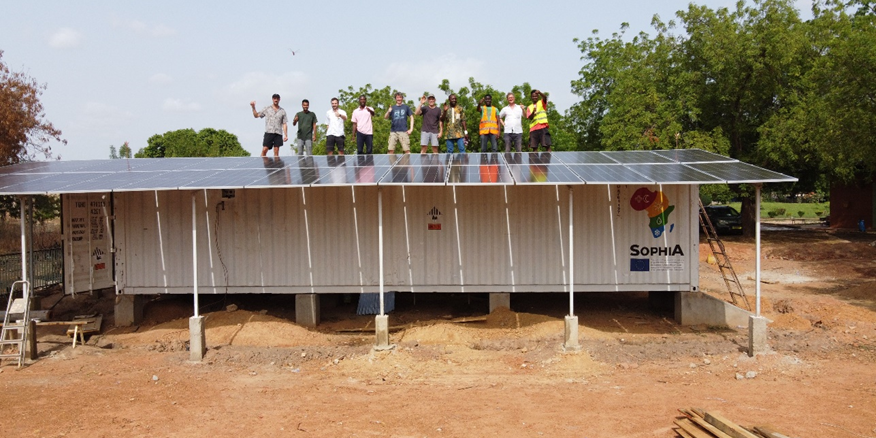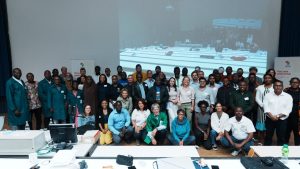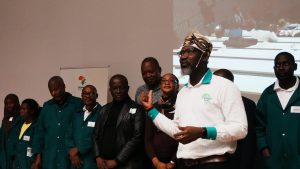Transforming rural healthcare with solar energy
Across sub-Saharan Africa, roughly a quarter of healthcare facilities operate without electricity and only 28% report reliable power. Without energy and clean water, hospitals struggle to store vaccines, sterilise surgical tools or provide basic medical services safely. SophiA sought to change this by developing modular systems capable of delivering refrigeration, water purification and steam generation entirely via solar power.
These systems, tailored for the unique conditions of Burkina Faso, Cameroon, Malawi and Uganda, use a combination of photovoltaics and solar thermal technology. Low-temperature thermal storage and high-temperature energy storage ensure continuous operation even when sunlight is intermittent. The systems preserve vaccines, blood plasma and other temperature-sensitive medical supplies, while also providing deionised and hot water for medical use.
Practical innovations meeting daily healthcare needs
Alongside its modular hospital systems, SophiA also developed two innovations designed to expand the reach and practicality of solar-powered healthcare.
The project introduced the PVmedPort, a stand-alone, solar-powered unit designed for mobile vaccination and outreach campaigns. Equipped with refrigeration and shaded seating, it operates as an autonomous care station, extending healthcare beyond hospital walls.
The PVsteamCube, developed by Simply Solar uses photovoltaic electricity to heat a metal block up to 400°C, storing energy to generate steam on demand for autoclaves, laundry and kitchens. Beyond sterilisation, it enables hospitals to prepare meals and hot drinks, a feature highly appreciated and even used during the inauguration in place of catering.
Crucially, the SophiA-generated systems have been designed to integrate seamlessly with existing infrastructure, eliminating the need for major structural changes to hospital buildings.
– Project coordinator Michael Kauffeld
Collaborative innovation across continents
SophiA brought together engineers, scientists, social researchers and public health officials from Europe and Africa. African partners played leading roles in manufacturing, local training and social acceptance, while European partners contributed with complementary technical expertise and project coordination.
Despite logistical challenges such as navigating customs regulations and global supply chain disruptions, the consortium succeeded in delivering functioning systems across four pilot hospitals.
Reflecting on success
SophiA’s final consortium meeting took place in Karlsruhe, Germany, on 17–18 September 2025. Participants celebrated the project’s achievements and discussed future opportunities for sustainable healthcare across Africa.
Healthcare representatives shared first-hand experiences from SophiA installations, citing improvements such as reliable access to clean water, safer conditions for surgery, lower infant mortality and reduced energy costs in hospital kitchens. Moreover, training initiatives were highlighted as vital to ensuring long-term sustainability and empowering local communities.
Partners addressed challenges encountered during implementation and outlined policy recommendations to support wider adoption of off-grid, sustainable technologies. Funding and post-project opportunities were also discussed, including potential expansion through carbon market initiatives and upcoming EU funding opportunities.
A session on the next generation of professionals showcased the importance of training young technicians and supporting women in the sector. Awards and certificates were presented to early-career leaders, women engineers and training participants, celebrating the human capacity built alongside technological innovation.
Looking Ahead
As SophiA concludes, the focus shifts to sustaining and expanding its impact. Installations in Malawi and Uganda are being completed, and the consortium is exploring ways to continue the project’s work, potentially through a future SophiA II project.
SophiA offers a compelling model for leveraging clean energy to strengthen healthcare infrastructure, improve patient outcomes and support sustainable development in Africa. Its legacy demonstrates that innovative, locally adapted technologies, combined with strong cross-continental collaboration, can create lasting change.
SophiA is among the 14 projects featured in the CORDIS Africa-EU collaboration Results Pack , showcasing real-world examples of the Africa–EU partnership in action. Sections of this article were adapted from this CORDIS publication.












